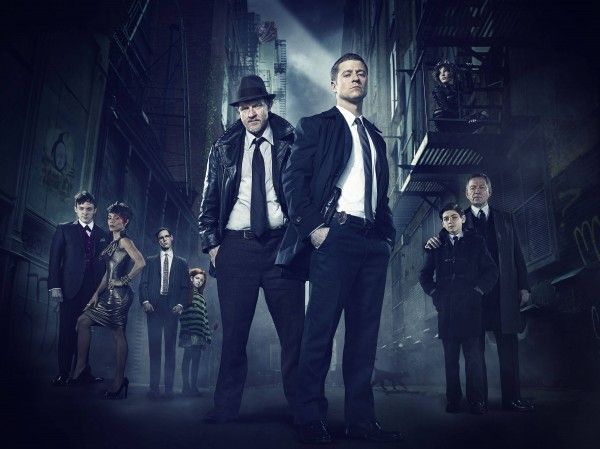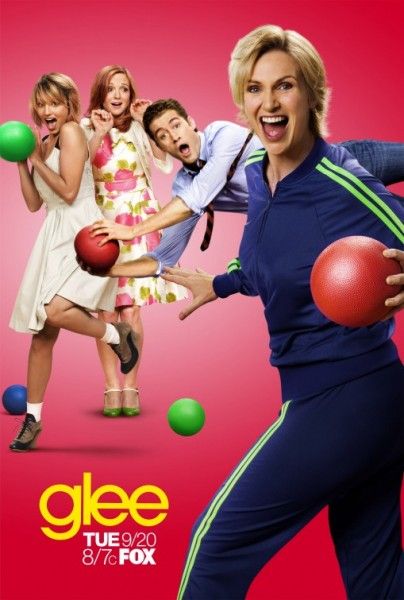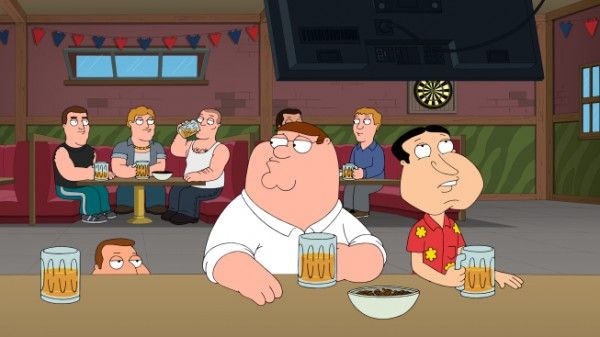The Upfronts have officially kicked off, with the TV networks announcing their news and returning shows, what’s been canceled, and how their programming schedule will take shape for the season. After announcing Fox’s 2014-2015 programming schedule, Kevin Reilly, Chairman of Entertainment at Fox Broadcasting Company, held a conference call to discuss their line-up and answer questions.
During the interview, Reilly talked about waiting to announce their mid-season schedule until they see how things shake out a bit, their desire to do year-round programming, how they’re determining episode orders for each show, their expectations for Gotham season 1, why they think it’s the perfect fit for the network, and why 16 episodes were ordered for its first season, figuring out the best way to end Glee, and why they’ll stay in the animation business. Check out what he had to say after the jump.
This is the first time you haven’t announced a mid-season schedule at Upfront time. What do you attribute that to?
KEVIN REILLY: We’ve always built our second season schedule around American Idol, knowing that it was a fixture and knowing exactly what the format was going to be. Next year, the format will be different. It will be less hours. It’s 37 hours, and it’s going to be streamlined. It is a work in progress. We have a pretty good sense of where things are going to go, but we’re going to let that shake out a little bit.
Can you talk about your desire to do year-round programming?
REILLY: I love having 24 on the air right now, but I’m very, very glad that we’re signaling, by putting 24 on in May and having it arc into the summer, that June is just as important as January. That’s why we’re putting another quality drama on, in Gang Related, in a couple of weeks. We really, really want to be a 12-month network. Some of the programming will extend within a 12-month span, but we also have more in the Fall. We’re trying to provide a schedule that will hold together. If you look at the amount of shows that we have in our back pocket, rolled out on a longer horizon, I think it’s strategically less than some other guys who have too many to launch. Some shows came and went, this last year, and no one even knew that they were on.
What can you say about episode orders and how you’ll determine that?
REILLY: When you look across the broader landscape, most cable shows are 13 to 15 episodes, and the audience seems very satisfied and excited to have that, and then waits up to nine months for them to return to the schedule. On broadcast, I hear just as many complains sometimes that we have shows that seem to continue to go on forever. I say this a lot, but there’s no standard order for a show anymore. I think the show should be tailor-made to what’s right for that particular show. Last year, Sleepy Hollow, in its first season, was making mini-movies every week. It was a big show. We stopped when we thought we could put on a creatively excellent product, and I think the show ended on a high note, as opposed to teasing it out for six or nine more episodes and having it barely hold together, and having a lot of repeats to get there. The other part of that is that Sleepy Hollow has now been back in series production already for a month, for next year. Next year, the order on Sleepy Hollow is 18 episodes. We will have almost all 18, in a row. They are now in series production, a good two months before just about any other returning drama on television, and the show is going to be really, really strong. I wish I had more last season, too, but it was healthier, in the long run, and it fit that show well.
Last year, Agents of S.H.I.E.L.D. was supposed to be ABC’s big hit, but it didn’t quite work out that way. What are your expectations for Gotham, and why do you think it’s a perfect show for the network?
REILLY: When you get these franchises with some built-in profiles in it and anticipation, the burden is that the anticipation and the build-up can exceed the delivery. While I felt like we had something potentially really huge in Gotham, you’re always nervous that it won’t live up. This is conjecture on my part, but I think they struggled to find the creative footing on [Agents of S.H.I.E.L.D.] Also, those weren’t the actual franchise characters. With Gotham, you should look at the pilot when it’s available. You’ll see that it’s very sure-footed, creatively. The concerns about whether it will live up to its promise were put to rest when I saw it, a month ago. I’ve also looked at written material and our series bible for the 13 episodes. We have a staff now and they’re generating, and it really feels like it knows what it is. And the real selling point to me, on Gotham, right from the get-go, was that these are the actual series franchise characters. It is the prequel story. These are stories never told. There is The Penguin, Commissioner Gordon, Bruce Wayne and The Riddler. There are fictitious characters. Jada Pinkett Smith’s character is a new character, called Fish Mooney, and you’ll see characters like that. But, the tentpoles of the world are the great characters we know and love. So, I am feeling very good about where we are with Gotham.
Do you see Gotham as a 13-episode series, or will you order more, if it does well?
REILLY: We’ve already ordered it, pro-actively, for 16 episodes. That’s a comment on how strongly we feel about it. We were only contractually obligated to order 13 and we ordered 16 because we think that’s the way that show, at least in its first iteration, will be strongest. Could we do more next season? We certainly could. But, that’s where we’re starting with that one. That show is going to have a very strong serialized element. Because they’re off to such a strong start, and are starting earlier, we’ll size that up. But, 16 feels like the right about. In our mind, there’s no set standard order anymore. It didn’t come down on stone tablets that television had to be made in 13 and 22 episode increments. We had craft them, over here at Fox.
Why did you decide to give a two-year pick-up to Glee?
REILLY: That was really a business negotiation, ultimately. We sat down, creatively, and heard where it was going, and we felt that there was a compelling creative reason to do it that way. Ryan Murphy has a really good beat on where the show is going to be concluded. It will be its last season, for sure. The order currently is for 22 episodes, but we’re going to sit down with Ryan and talk about how we’re going to end it. The advantage of having it on later in the season is that we don’t have to feel the pressure of delivery and we can air them in a row. So, we’re going to sit down and talk about the best way to end the show, and how many episodes that is.
Almost Human and Surviving Jack had ratings that were comparable to other shows that did get picked up. What were you not seeing in those shows that you would have liked to have seen, in order for them to have gotten picked up?
REILLY: There are always bubble shows. Right now, particularly when you look at the live, same day ratings, there are a lot of shows that look like they’re grouped together with the same ratings, and ultimately, you can only afford to float so many of those. We have some shows that have been on the air for a couple of years, that have small but very passionate and distinct audiences. You’ve gotta make choices. Every show is its own conversation. We look to the ratings performance as one marker. We look to another marker as how the show was run. And then, ultimately, we look at whether it’s profitable, where we can schedule it, and if we can support it, going forward. Surviving Jack was actually a really nice show that was very well run, creatively. We liked it and would have liked to have brought it back. The same goes for Enlisted. We had a good conversation about Dads. Those are shows that we would have liked to have brought back. We just felt like we couldn’t support them, for various reasons, in a way that would have really given them a shot, so we’re all moving on.
Are you looking to remain in the animation business?
REILLY: The animation business is something we’ve had a monopoly on, for the entire run. They are incredibly potent and culturally impactful and profitable shows for us. We’re going to remain in that business for as long as we’re in business. But at the end of the day, comedy is comedy. One of the challenges in live-action comedy, across the landscape, even in this more on-demand world, having a lead-in and some protection is still meaningful. Comedies can very rarely self-start. This season, there was a lot of comedy introduced by the networks and the only ones that had success, at all, had some lead-in protection. So, we love the comedies that we have and they’re returning to the schedule, but I couldn’t face it again, having them exposed without some protection. So, we utilized some of the strongest assets we have, with the Sunday night football audience. Two of our most consistent and highest-rated shows, year in and year out, are The Simpsons and Family Guy. That’s where Fox started. The biggest move that put Fox on the map, from an entertainment perspective, was when The Simpsons moved to Thursday night, and that was paired with Martin and Living Single. And the Bundys initially came out of there, on Sunday night.



